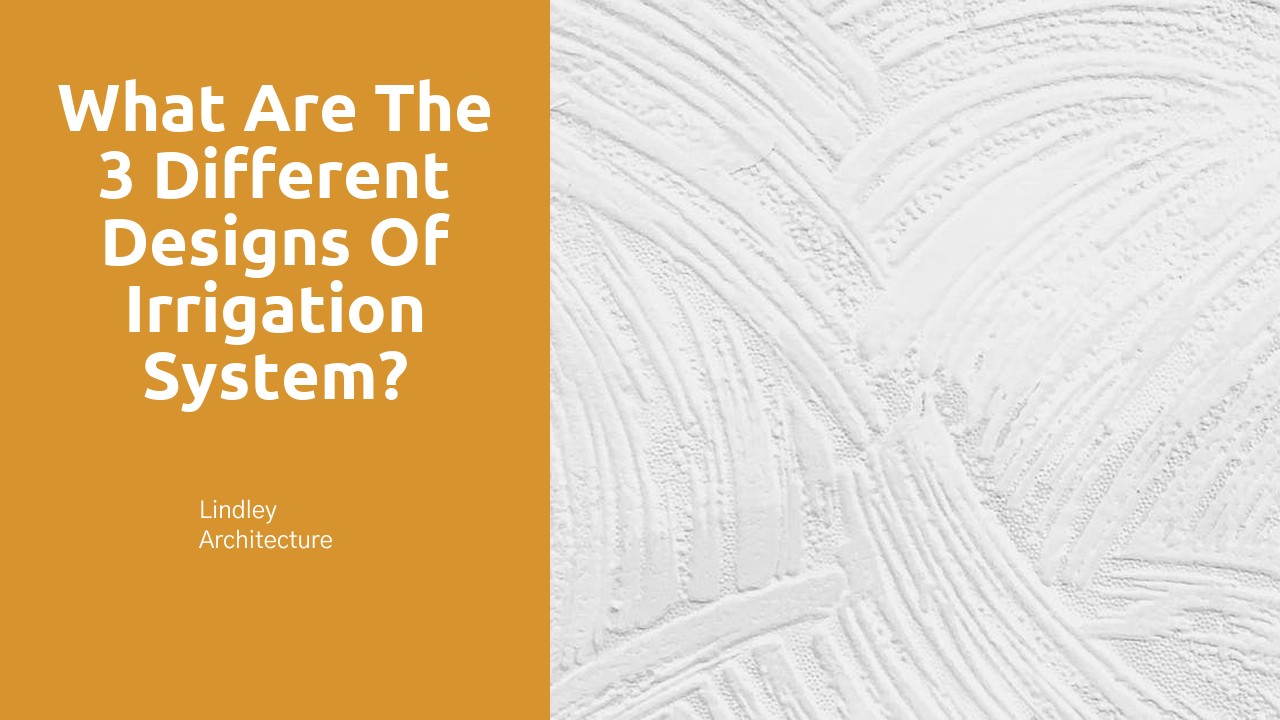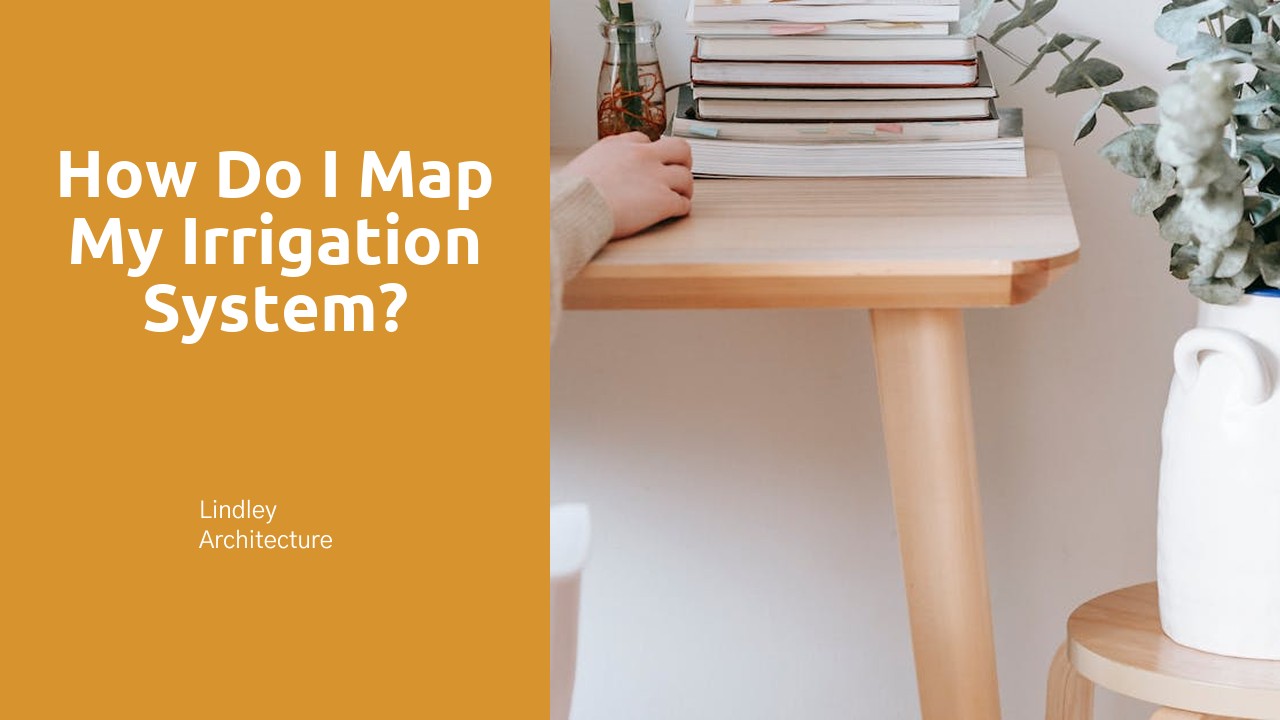
Table Of Contents
Setting Up a Watering Schedule
Setting up a watering schedule is a crucial step in effective irrigation design in Ottawa. It involves creating a routine for watering different zones in your garden or landscape. To do this, first, identify the specific watering needs of various plants and areas in your property. Consider factors such as plant type, soil type, sun exposure, and drainage patterns when establishing a consistent watering routine for each zone. Remember that some plants may require more frequent watering than others, so tailor your schedule accordingly to ensure all vegetation receives adequate moisture to thrive in the unique climate of Ottawa.
Establishing a consistent watering routine for each zone
When designing an irrigation plan, it is essential to establish a consistent watering routine for each zone. In the context of Irrigation Design in Niagara, this means dividing your landscaping area into separate zones based on plant type, sun exposure, and soil composition. By categorizing your landscape in this way, you can tailor the watering schedule to meet the specific needs of each zone more effectively. For instance, zones with plants that require frequent watering can be scheduled accordingly, while zones with drought-resistant vegetation can be watered less frequently to conserve water and promote healthy plant growth.
Furthermore, having a consistent watering routine for each zone not only ensures that all plants receive the adequate amount of water they need but also helps prevent overwatering or under-watering. By adhering to a set schedule, you can maintain the health and vitality of your landscape while minimizing water wastage. Additionally, monitoring the soil moisture levels in each zone can provide valuable insights into whether adjustments need to be made to the watering schedule to optimize plant growth and health.
Monitoring Soil Moisture Levels
Monitoring soil moisture levels is a crucial aspect of an effective irrigation plan. By regularly assessing the moisture content of the soil, you can determine the watering needs of your plants more accurately. Utilizing moisture sensors in your irrigation design in Kingston allows you to gauge when it is time to water and when it is best to hold off, preventing overwatering which can lead to root rot and other issues.
These moisture sensors provide real-time data on the moisture levels in the soil, ensuring that your plants receive the optimal amount of water for healthy growth. By integrating these sensors into your irrigation system, you can automate the process of watering, making it more efficient and precise. This technology helps to conserve water by only irrigating when necessary, which is not only beneficial for your plants but also for the environment.
Using moisture sensors to gauge irrigation needs
Moisture sensors play a crucial role in the effective irrigation design in Niagara, allowing for a more precise understanding of the soil's water content. These devices are instrumental in determining the exact moisture levels of the soil, thereby indicating when watering is necessary. By utilizing moisture sensors, gardeners and farmers can accurately gauge the irrigation needs of their plants, ensuring that water is applied only when required. This approach not only conserves water but also promotes healthier plant growth by avoiding both overwatering and underwatering.
Integrating moisture sensors into your irrigation system in Niagara provides real-time data on soil moisture levels, enabling timely adjustments to the watering schedule. By continuously monitoring the soil's moisture content, you can customize the irrigation regime to meet the specific needs of different zones within your landscape. This level of precision ensures that each area receives the appropriate amount of water, leading to optimal plant health and water efficiency in the Irrigation Design in Niagara.
Adjusting for Seasonal Changes
Adjusting your irrigation schedule according to seasonal changes is crucial to ensure that your plants receive the appropriate amount of water throughout the year. In Burlington, understanding the unique climate variations will help in optimizing your irrigation plan and maintaining the health of your garden or landscape. During the summer months, increasing the frequency and duration of watering sessions is essential to prevent drought stress and keep plants thriving in the heat.
Conversely, as the colder months approach in Burlington, it is necessary to reduce the amount of water supplied to your plants. Overwatering during fall and winter can lead to waterlogged roots and increased susceptibility to diseases. By adjusting your irrigation schedule diligently based on the seasonal requirements, you can promote the longevity and vibrancy of your landscape while conserving water resources effectively.
Adapting your watering schedule for different seasons
Adapting your watering schedule for different seasons is crucial in maintaining a healthy landscape in Mississauga. Understanding the varying water requirements of plants during different times of the year is necessary for an efficient irrigation design in Mississauga. During the summer months, when temperatures are high and evaporation rates increase, you may need to water more frequently. Be mindful of the type of plants in your garden as well, as some may require more water than others during this time. On the other hand, in the cooler months, plants generally require less water due to lower evaporation rates and slower growth.
Irrigation design in Mississauga should take into account the changing weather patterns that come with each season. By adjusting your watering schedule accordingly, you can ensure that your plants receive the right amount of moisture to thrive. Consider investing in a smart irrigation system that can automatically adjust watering times based on weather conditions. This technology can help you conserve water and prevent overwatering, which can lead to root rot and other plant diseases. Ultimately, adapting your watering schedule for different seasons is key to a successful irrigation design in Mississauga.
FAQS
What are the key elements to consider when designing an irrigation plan?
When designing an irrigation plan, it is important to consider factors such as the type of plants in each zone, soil type, sun exposure, and local climate conditions.
How do I determine the watering schedule for my irrigation system?
To determine the watering schedule for your irrigation system, you can start by considering the water needs of the plants in each zone and establish a consistent watering routine based on those requirements.
Are there tools available to help monitor soil moisture levels for efficient irrigation?
Yes, there are moisture sensors available that can be used to gauge soil moisture levels and help you determine when it is time to water your plants, ensuring efficient irrigation practices.
How can I adjust my irrigation plan for seasonal changes?
To adjust your irrigation plan for seasonal changes, you can adapt your watering schedule based on the changing water needs of your plants throughout different seasons. It is essential to be mindful of factors like temperature and precipitation variations.
What are the benefits of establishing a consistent watering routine for each zone in my garden?
Establishing a consistent watering routine for each zone in your garden helps promote healthy plant growth, prevents overwatering or underwatering, and ensures that water is used efficiently, ultimately leading to a thriving garden.






